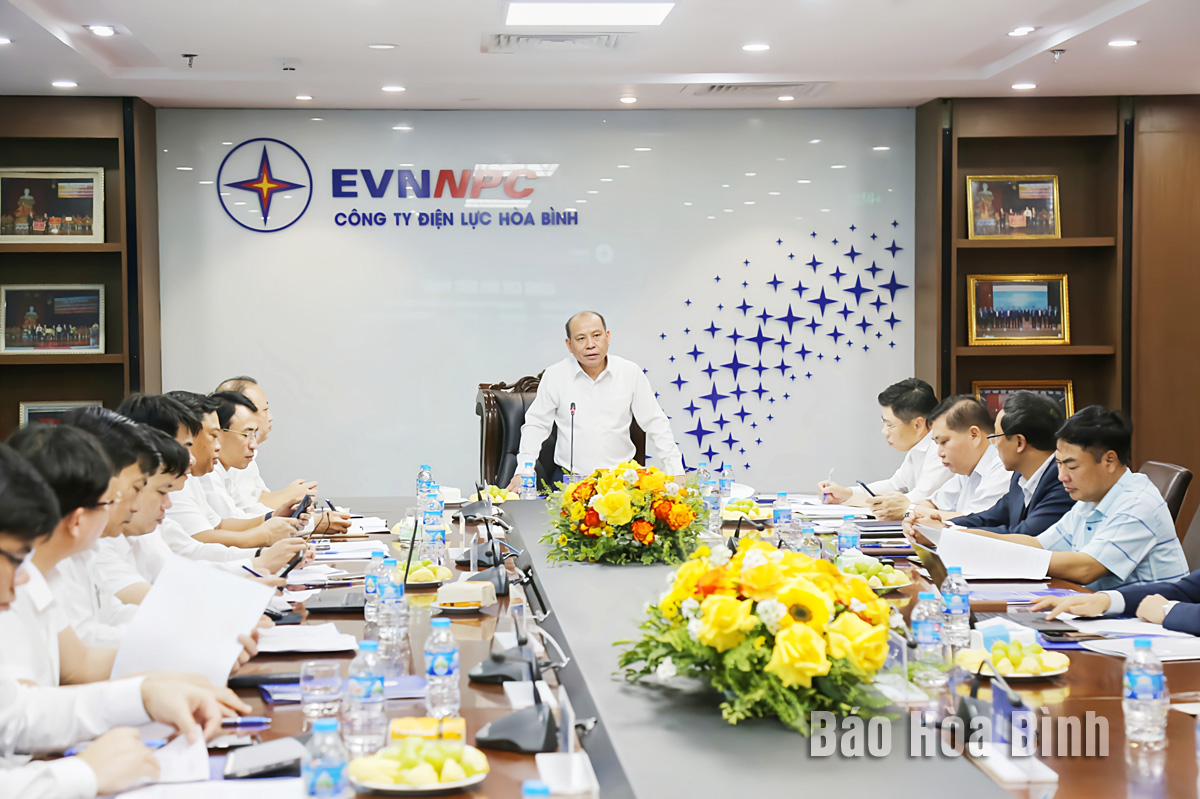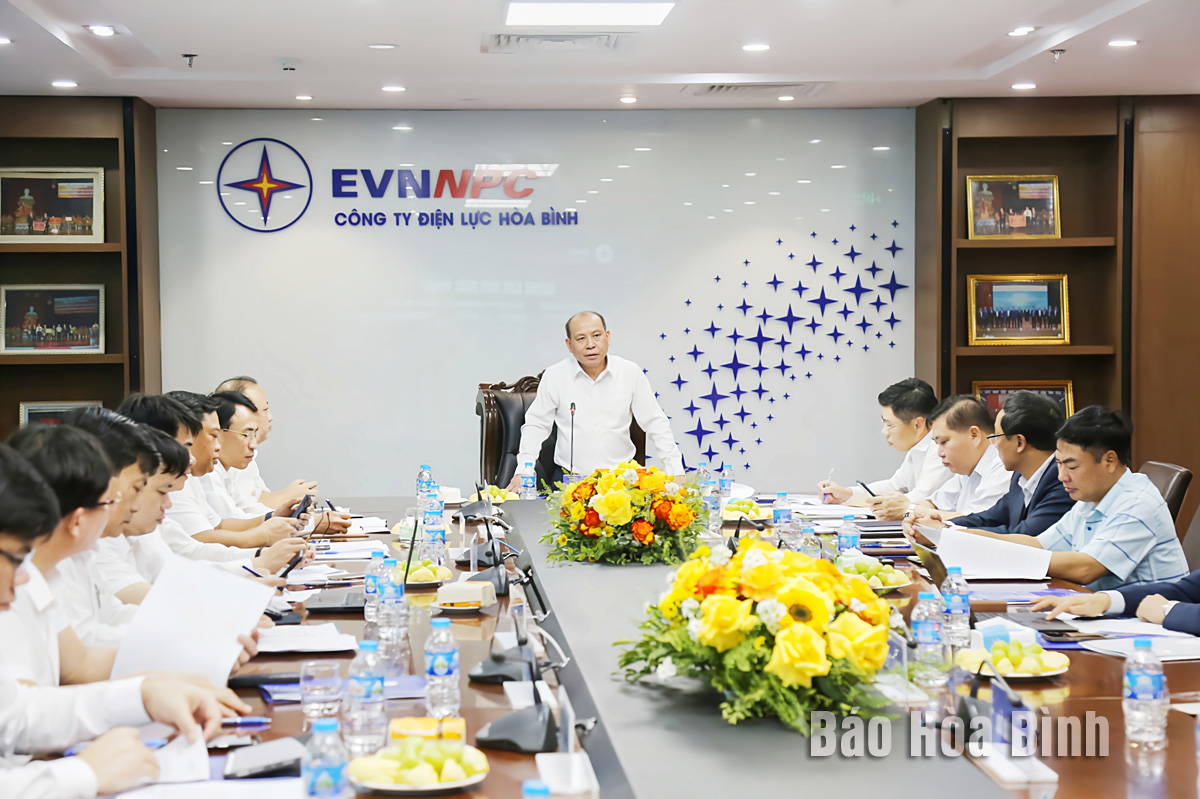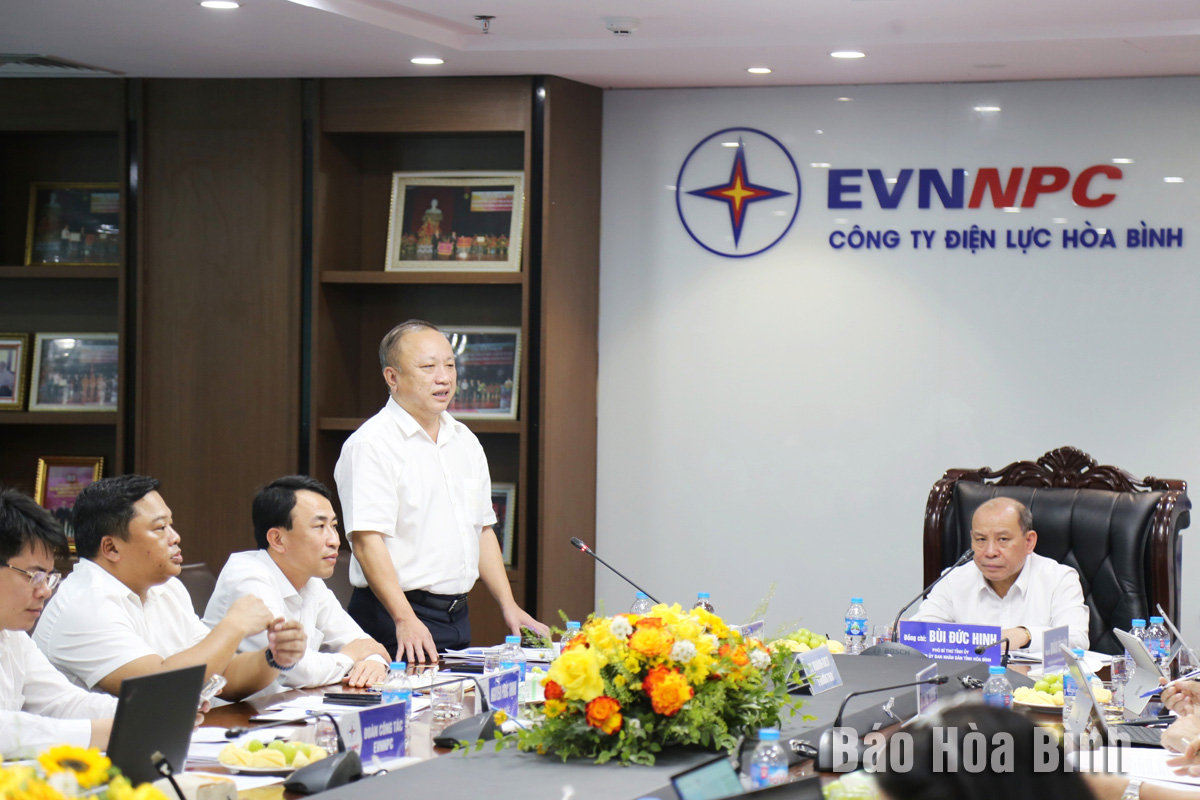
Deputy Secretary of the Hoa Binh provincial Party Committee and Chairman of the provincial People’s Committee Bui Duc Hinh had a working session with the Vietnam Electricity (EVN)’s Northern Power Corporation (EVNNPC) and Hoa Binh Power Company on March 3.
Deputy Secretary of the provincial Party Committee
andChairman of the provincial People’s Committee Bui Duc Hinh speaks at
the working session.
EVNNPC Deputy
Director General Vu Anh Phuong discusses investment in power grid to ensure
electricity supply for the locality.
Hoa Binh is now home to 12 operational
hydroelectric plants with a combined capacity of 1,959.75 MW, with the Hoa Binh
hydropower plant being expanded to have a capacity of 480 MW. The province's
110kV grid includes 10 substations with 16 transformers and has a total
capacity of 509 MVA.
According to the Hoa Binh Power Company, power
consumption grew by an annual average of 9.61% during 2016–2020, and 8.25%
during 2021–2023. For commercial electricity, the average growth rate reached
9.75% annually during 2016–2020.
The EVNNPC has invested heavily in Hoa Binh's
power infrastructure, allocating 940.5 billion VND (36.87 million USD) for 13
projects on 110 kV transmission lines during 2021–2025, and over 798 billion
VND for medium- and low-voltage networks during 2020–2024.
Currently, 99.98% of households in the province
have access to the national power grid, and all the 129 communes have met
Criterion No. 4 for electricity infrastructure in the national criteria on
new-style countryside building.
At the working session, participants discussed
achievements, challenges, and strategies to ensure stable electricity supply
throughout 2025 and beyond.
The EVNNPC acknowledged the province's
recommendations and called for approval of several proposed projects. It
committed to sufficient and safe power supply for local socio-economic
development, particularly for the industrial and tourism sectors.
Chairman Hinh spoke highly of the progress made
in electricity supply and infrastructure development, asking the EVNNPC to
develop plans ensuring stable power supply for industrial zones and the Hoa
Binh Lake tourism area.
He also requested the EVNNPC to allocate funds
for upgrading medium- and low-voltage lines and transformer stations, expedite
ongoing projects, and expand substation capacity to reduce overloading. He
emphasised the importance of close coordination with local departments and
sectors to overcome challenges related to land clearance, route planning, and
investment approval.
According to data from the Hoa Binh Provincial Party Committee, the industrial production index for the first six months of 2025 is estimated to have increased by 20% compared to the same period last year. This marks the highest year-on-year growth rate for this period since 2020.
In the first six months of 2025, Hoa Binh province’s export turnover was estimated at 1.145 billion USD, marking an 18.11% increase compared to the same period in 2024. Import turnover was estimated at $ 804 million, a 17.15% increase, which helped the province maintain a positive trade balance.
The lives of the ethnic minority farmers in Tan Lac district have gradually improved thanks to the new directions in agricultural production. This is a testament to the collective strength fostered through the professional associations and groups implemented by various levels of the district’s Farmers’ Union.
With the motto the "product quality comes first,” after nearly one year of establishment and operation, Muong village’s Clean Food Agricultural and Commercial Cooperative, located in Cau Hamlet, Hung Son Commune (Kim Boi district), has launched reputable, high-quality agricultural products to the market that are well-received by consumers. The products such as Muong village’s pork sausage, salt-cured chicken, and salt-cured pork hocks have gradually carved out a place in the market and they are on the path to obtaining the OCOP certification.
In the past, the phrase "bumper harvest, rock-bottom prices" was a familiar refrain for Vietnamese farmers engaged in fragmented, small-scale agriculture. But today, a new spirit is emerging across rural areas of Hoa Binh province - one of collaboration, organisation, and collective economic models that provide a stable foundation for production.
Maintaining growing area codes and packing facility codes in accordance with regulations is a mandatory requirement for agricultural products to be eligible for export. Recently, the Department of Agriculture and Environment of Hoa Binh province has intensified technical supervision of designated farming areas and packing facilities to safeguard the "green passport" that enables its products to access international markets.




